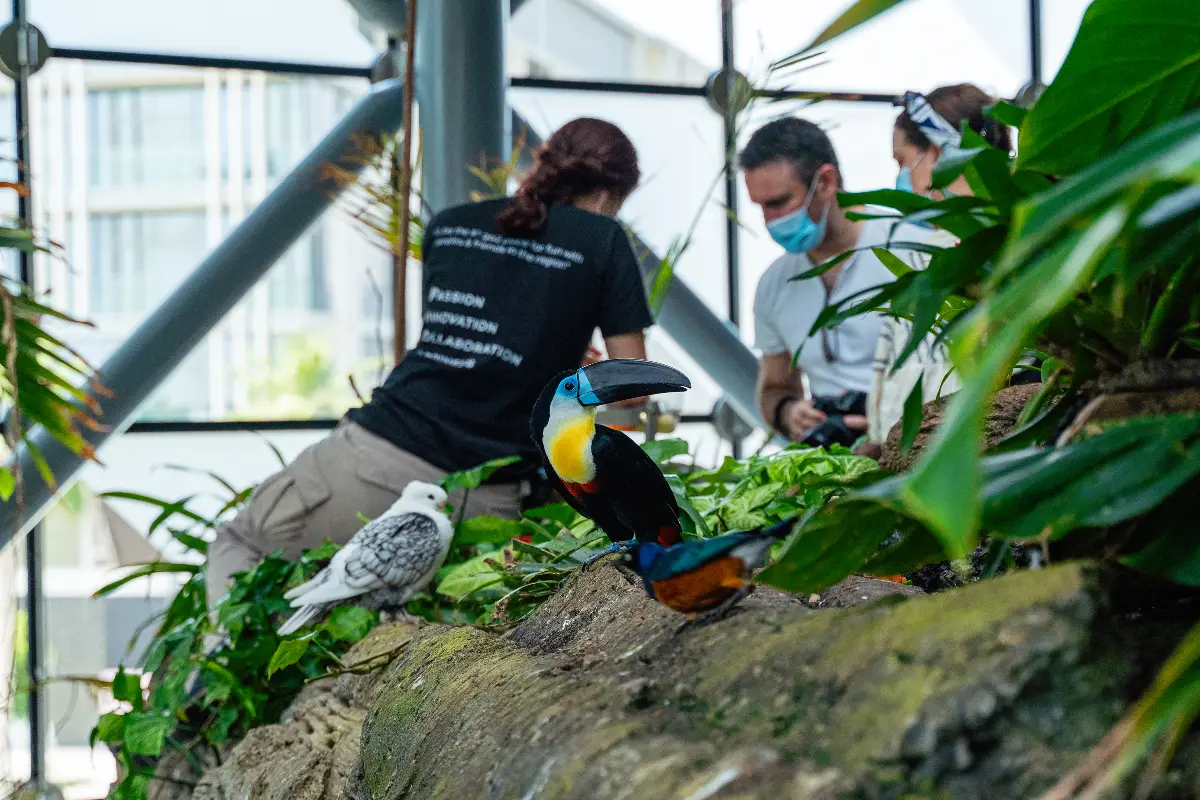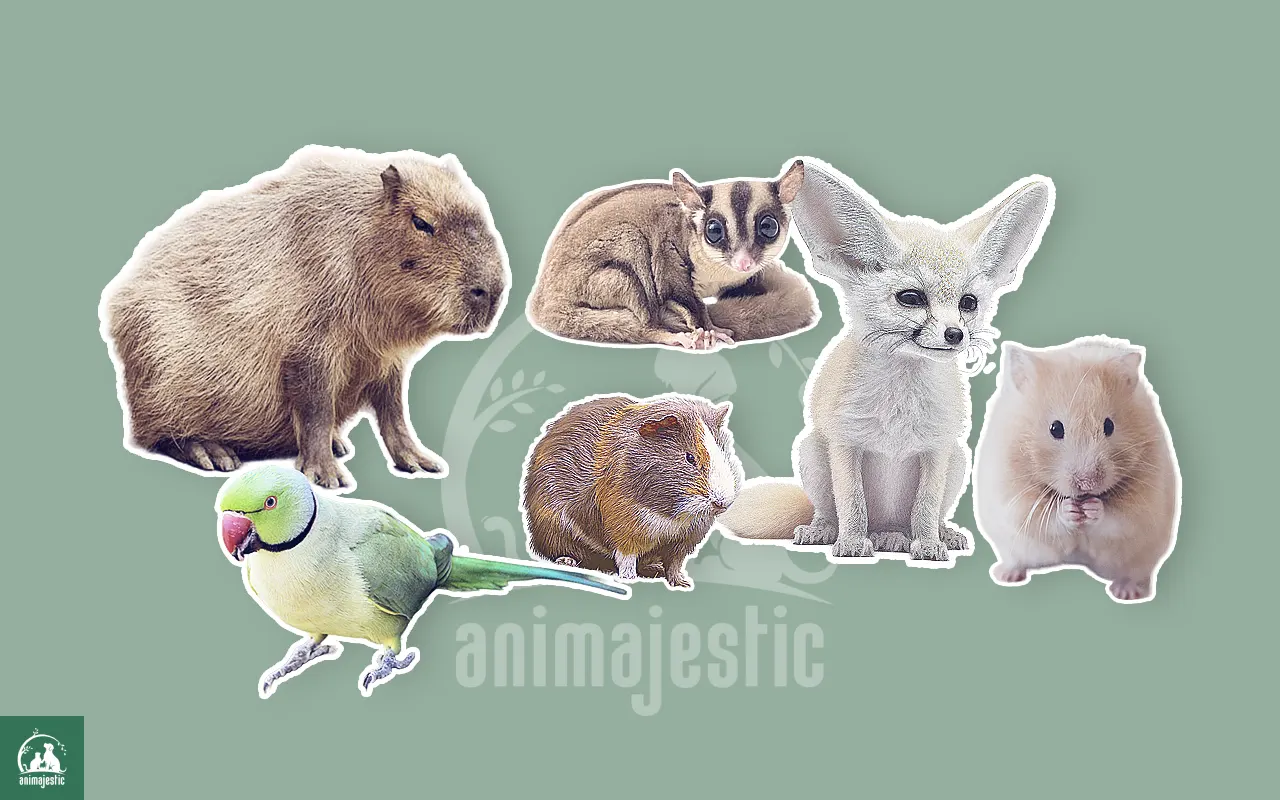Exotic pet care demand has been on the rise and as exotic pets continue to grow in popularity, it’s essential to understand the specific care requirements that come with these fascinating creatures.
From reptiles to birds, and mammals to fish, the assortment of exotic pets presents a diverse array of needs and challenges for owners.
With proper care and attention to detail, you can ensure a happy, healthy life for your cherished exotic companion.
An Introduction to the World of Exotic Pets
Exotic pets encompass a vast range of species, each with its own unique set of guidelines for care. Some popular examples include bearded dragons, chinchillas, hedgehogs, tarantulas, and parrots.
While these animals offer a charming alternative to traditional pets, prospective owners must be prepared to provide tailored care to meet their specific needs.
Before You Bring Your Exotic Pet Home
Prior to adopting an exotic pet, it’s crucial to conduct thorough research and thoughtfully consider the commitment required. This includes devoting time to:
- Education: Studying the habits, requirements, and overall lifestyle of your desired exotic pet.
- Local Legislation: Investigate any applicable laws or regulations governing pet ownership in your area.
- Housing: Assessing the necessary space and environment to provide a comfortable and stimulating home.
Distinct Nutritional and Dietary Needs
Feeding your exotic pet a well-balanced diet is integral to their overall well-being. As different species have distinct dietary requirements, understanding and meeting these needs is an essential part of pet ownership.
- Reptiles: Reptilian diets can vary from omnivorous to strictly herbivorous or carnivorous. Insects, vegetables, and specially designed pellets may be required to maintain the health of your reptile.
- Birds: Avian species often need species-specific seed and pellet mixes, fresh fruits, vegetables, and other vitamin-rich foods.
- Mammals: Small mammals may require a blend of commercial feed alongside fresh vegetables, occasional fruit, or insects.
- Fish: Different fish species have different nutritional requirements, ranging from high-quality flakes and pellets to live or frozen foods.

Creating a Suitable and Stimulating Environment
Beyond their basic dietary needs, exotic pets require unique living spaces tailored to their size, habits, and natural habitats. Ensuring your pet has an appropriate enclosure, complete with the necessary furnishings and accessories, will significantly improve their quality of life.
- Reptiles: Many reptiles need specific heat, humidity, and lighting conditions to thrive. Enclosures should include a heat source and UVB lamp in addition to hiding spots, branches, and suitable substrate.
- Birds: Multi-perch cages that provide ample space for flying or climbing are essential for birds, along with toys to keep them entertained and mentally stimulated.
- Mammals: Enclosures for small mammals should mimic their natural environment, with places to explore, hide, and play. Bedding and nesting materials are also crucial for their comfort.
- Fish: The size and type of tank will depend on the fish species you keep, along with filtration systems, proper substrate, and decorations that replicate their natural habitat.
Proper Healthcare for an Exotic Companion
Finding a veterinarian experienced with exotic pets is vital for maintaining your pet’s health.
Regular check-ups can help detect any potential health problems, and your vet will keep you informed on proper vaccinations or treatments to prevent disease.
It’s also essential to stay informed about common health concerns and symptoms to keep an eye out for any signs of illness.
The Importance of Mental Stimulation and Exercise
An essential, yet often overlooked, aspect of exotic pet care is allowing ample exercise and mental stimulation.
Toys, puzzle feeders, regular handling, or interaction with other pets of the same species can greatly enhance your pet’s overall happiness.
Facilitating activities that encourage natural behaviors will foster a content and thriving pet.
The Emotional Needs of Your Exotic Friend
Finally, it’s crucial to remember that your exotic pet has emotions too. Regular handling, bonding sessions, and providing suitable companions in pet species that require socialization will help nurture your pet’s emotional well-being.
As an owner, you should be patient, gentle, and responsive to their needs, adjusting pet care practices where needed to minimize stress and discomfort.
In Conclusion
Exotic pets provide a unique and rewarding experience, but their well-being relies heavily on the dedication, knowledge, and care provided by their owner.
Through research, proper nutrition, housing, emotional support, and specialized healthcare, you can create a rich and fulfilling life for your extraordinary exotic companion.
